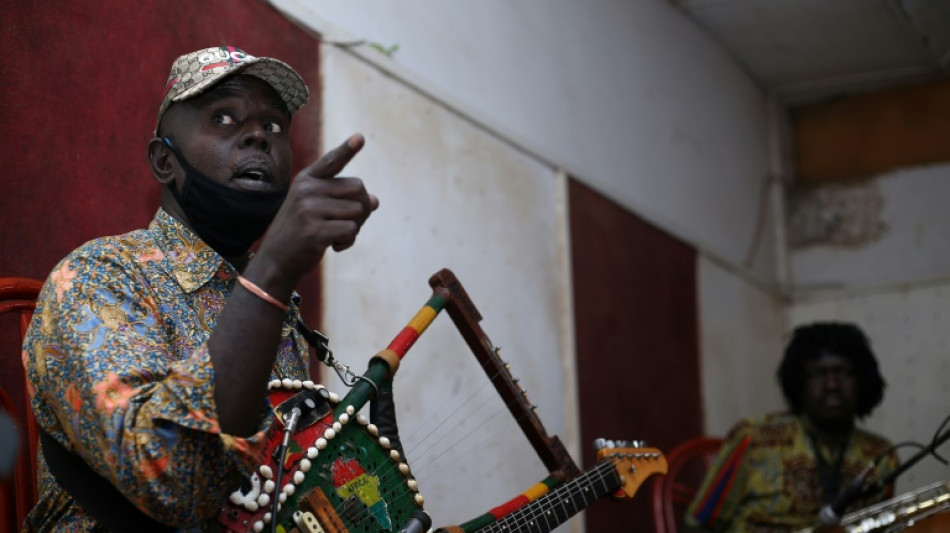
-
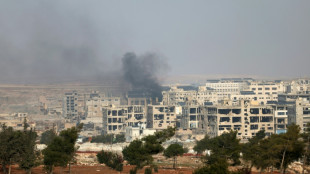 Kurdish fighters refuse to leave Syria's Aleppo after truce
Kurdish fighters refuse to leave Syria's Aleppo after truce
-
Grok turns off AI image generation for non-payers after nudes backlash

-
 Germany factory output jumps but exports disappoint
Germany factory output jumps but exports disappoint
-
Defiant Khamenei insists 'won't back down' in face of Iran protests

-
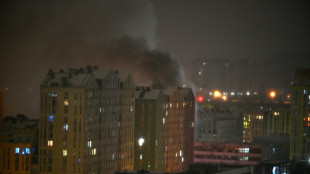 Russian strikes cut heat to Kyiv, mayor calls for temporary evacuation
Russian strikes cut heat to Kyiv, mayor calls for temporary evacuation
-
Switzerland holds day of mourning after deadly New Year fire

-
 Hundreds of thousands without power as storms pummel Europe
Hundreds of thousands without power as storms pummel Europe
-
Man City win race to sign forward Semenyo

-
 Experts say oceans soaked up record heat levels in 2025
Experts say oceans soaked up record heat levels in 2025
-
'Would be fun': Alcaraz, Sinner tease prospect of teaming up in doubles

-
 Man City win race to sign Semenyo
Man City win race to sign Semenyo
-
Chinese AI unicorn MiniMax soars 109 percent in Hong Kong debut

-
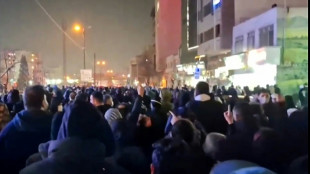 Iran rocked by night of protests despite internet blackout: videos
Iran rocked by night of protests despite internet blackout: videos
-
Swiatek romps to United Cup victory in 58 minutes

-
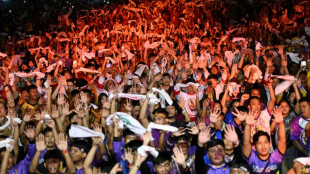 Procession of Christ's icon draws thousands to streets of Philippine capital
Procession of Christ's icon draws thousands to streets of Philippine capital
-
Every second counts for Japan's 'King Kazu' at 58

-
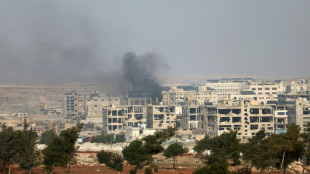 Syria announces ceasefire with Kurdish fighters in Aleppo
Syria announces ceasefire with Kurdish fighters in Aleppo
-
Russia hits Ukraine with hypersonic missile after rejecting peacekeeping plan
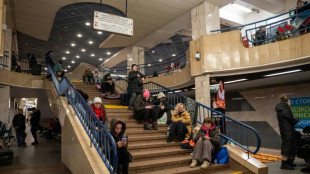
-
 Asian stocks mixed ahead of US jobs, Supreme Court ruling
Asian stocks mixed ahead of US jobs, Supreme Court ruling
-
Scores without power as Storm Goretti pummels Europe

-
 Sabalenka gets revenge over Keys in repeat of Australian Open final
Sabalenka gets revenge over Keys in repeat of Australian Open final
-
Fresh from China, South Korea president to visit Japan
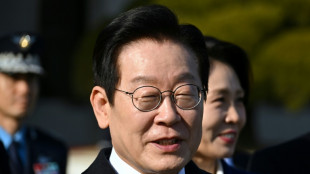
-
 Injured Kimmich to miss icy Bundesliga return for Bayern
Injured Kimmich to miss icy Bundesliga return for Bayern
-
Rybakina has little hope of change to tennis schedule

-
 Osimhen, Nigeria seek harmony with Algeria up next at AFCON
Osimhen, Nigeria seek harmony with Algeria up next at AFCON
-
US immigration agent's fatal shooting of woman leaves Minneapolis in shock

-
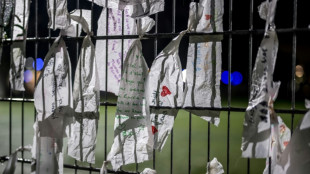 After fire tragedy, small Swiss town mourns 'decimated generation'
After fire tragedy, small Swiss town mourns 'decimated generation'
-
Switzerland mourns Crans-Montana fire tragedy
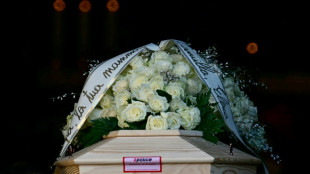
-
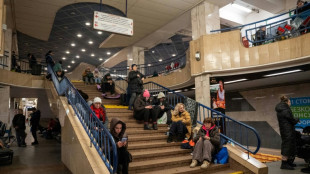 Russia bombards Kyiv after rejecting peacekeeping plan
Russia bombards Kyiv after rejecting peacekeeping plan
-
Crunch time for EU's long-stalled Mercosur trade deal
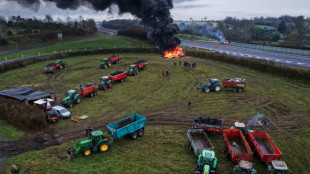
-
 Asian stocks rally ahead of US jobs, Supreme Court ruling
Asian stocks rally ahead of US jobs, Supreme Court ruling
-
'Sever the chain': scam tycoons in China's crosshairs
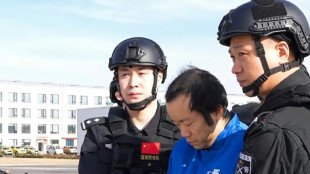
-
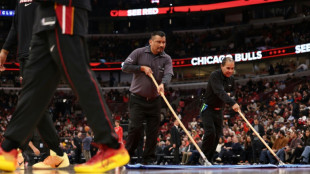 Bulls-Heat NBA game postponed over 'moisture' on court
Bulls-Heat NBA game postponed over 'moisture' on court
-
Arsenal's Martinelli 'deeply sorry' for shoving injured Bradley

-
 Christ icon's procession draws thousands to streets of Philippine capital
Christ icon's procession draws thousands to streets of Philippine capital
-
Moleiro shining as Villarreal make up La Liga ground after cup failures

-
 New Chelsea boss Rosenior faces FA Cup test
New Chelsea boss Rosenior faces FA Cup test
-
Vietnam shrugs off Trump tariffs as US exports surge

-
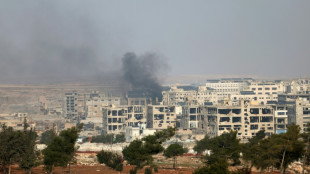 Syrian government announces ceasefire in Aleppo after deadly clashes
Syrian government announces ceasefire in Aleppo after deadly clashes
-
New Zealand's rare flightless parrot begins breeding again
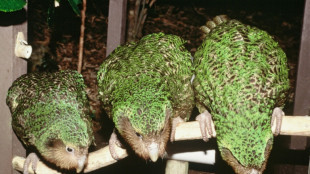
-
 Age no barrier for rampant Australia but future uncertain
Age no barrier for rampant Australia but future uncertain
-
Ex-delivery driver gives voice to China's precarious gig workers

-
 Protesters, US law enforcers clash after immigration agent kills woman
Protesters, US law enforcers clash after immigration agent kills woman
-
AI gobbling up memory chips essential to gadget makers
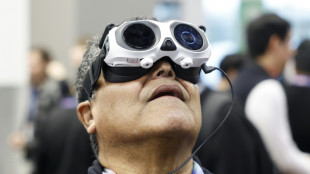
-
 'One Battle After Another' leads the charge for Golden Globes
'One Battle After Another' leads the charge for Golden Globes
-
Kyrgios to play doubles only at Australian Open

-
 Univest Securities and CEO Edric Yi Guo Bridge Capital Markets and Education Through Global Engagement
Univest Securities and CEO Edric Yi Guo Bridge Capital Markets and Education Through Global Engagement
-
Firefighters warn of 'hectic' Australian bushfires

-
 International Space Station crew to return early after astronaut medical issue
International Space Station crew to return early after astronaut medical issue
-
Arsenal in 'strong position' despite missed opportunity for Arteta


Sudan band's music empowers sidelined ethnic group
Noureddine Jaber, a musician with a unique part-guitar, part-tamboura instrument, is giving voice to Sudan's long-marginalised eastern communities through a new album.
Hailing from the Red Sea city of Port Sudan, Jaber belongs to the Beja people, a group of nomadic herders and breeders with unique languages, culture, food and music.
They have borne the weight of disenfranchisement especially under autocratic president Omar al-Bashir who was ousted in 2019.
But the title of his first album, due out later in June, conveys a different message: "Beja Power."
During Bashir's three-decade rule, non-Arab groups complained that his government allowed Arab culture to dominate, giving little representation to the country's many ethnic minorities.
Also known as "Noori", Jaber grew up devouring the rich heritage of distinct tunes of the Beja people who trace their roots back millennia.
Though he first formed his band in 2006, it was only in recent months that he was able to record his first album, at the age of 47.
"Beja music is the window to the struggles of its people," said Jaber, who called his six-member band "Dorpa", which means "the band of the mountains" in Bedawit, a Beja language.
"The Beja have long been marginalised and we are trying to convey their voice through music."
Though their region is a maritime trade hub known for its lush fertile fields, and rich gold mines, it is also one of the most impoverished parts of Sudan, itself one of the poorest countries in the world.
At a studio in Omdurman, the capital Khartoum's twin city, Jaber leads his band through rehearsal, producing a mellow, toe-tapping sound somewhat similar to jazz.
"Let's play the 'Saagama'," Jaber tells his bandmates: a bassist, saxophonist, rhythm guitarist, bongos player, and a conga drummer.
In his hand he holds his unique "tambo-guitar", an instrument he fashioned from a guitar neck and his father's vintage tamboura, a type of lyre played in East Africa.
Jaber's invention is embossed with small shells and a map of Africa.
- 'Very special rhythm' –
"Saagama", which means migration in Bedawit, is one of the album's most evocative tracks, inspired by ancient melodies from Sudan's east.
Unlike him, the rest of the band all hail from different parts of ethnically diverse Sudan.
They say it took them years to learn the Beja music scales and tones, traditionally played on drums and the tamboura.
"I've never been to east Sudan. I only learned the music from Noori," conga player Mohamed Abdelazim told AFP.
"The way they play drums in the east is different, very distinct. It has its own very special rhythm."
According to Jaber, the Beja's under-representation in Sudanese culture is part of why many fail to recognise their music.
Under Bashir, he told AFP, "the rule was for the Arab culture to prevail while other African ethnicities fade."
Beja musicians regularly faced restrictions, with authorities often stopping their performances.
"It could be for anything, lack of permits or because the audience were mixed groups" of men and women together, in contrast to those of Arab performers, Jaber said.
Abdelhalim Adam, the band's bassist, is originally from the ethnic Folani tribe of the Darfur region, on the other side of the country in Sudan's west.
For him, joining the band was particularly meaningful.
"The Beja's struggle is similar to our tribes in North Darfur," Adam said. "They are as marginalised."
Darfur was ravaged by civil war that began in 2003 when ethnic minority rebels took up arms against Bashir's Arab-dominated government, which unleashed the Janjaweed militia blamed for atrocities.
Hundreds of thousands were killed and millions have been displaced since.
The Beja also rebelled against Bashir's government for more than a decade. Communities in the east then joined nationwide calls for his ouster in the protests which began in 2018.
A glimmer of hope shone following Bashir's overthrow and the installation of a fragile transition to civilian rule which pledged to end marginalisation in Sudan.
But even then, Beja tribes complained of marginalisation.
Last year, they blockaded the main seaport of Port Sudan shortly before a military coup led by army chief Abdel Fattah al-Burhan upended Sudan's transition.
As Beja tribes continue to call for wider representation, Jaber has zeroed in on music as his avenue to highlight the struggles of his people.
"It's an effective way for our story to travel and attract the world's attention," he says. And it is also a way "to preserve our heritage."
Ch.Kahalev--AMWN

